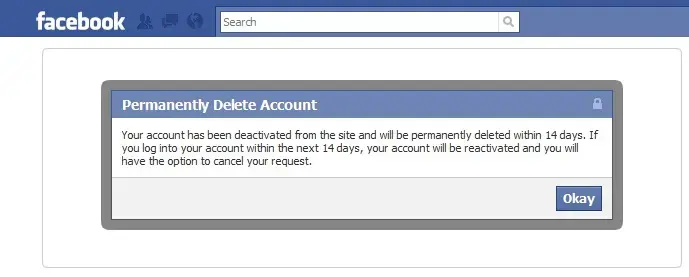
Facebook broke its social contract
A few months ago I deleted my Facebook account. It’s not suspended. I didn’t lose the login details. I removed it — all of it. The posts, friends, thoughts, stories, links, photos are all gone. Why? Facebook broke its social contract.
In Dan Ariely’s fantastic book, Predictably Irrational, he identifies two types of contracts between humans — financial and social.
I have a financial contract with my mobile phone provider. If I quit my cell company, it doesn’t hurt the company’s feelings. The CEO won’t hate me. The company tries to keep me with better offers. They even try to sound like they care or are empathetic. They’re not. Is my call “important” to them? No. Not really. It’s just business.
I have a social contract with my mother-in-law. She’s a wonderful person (seriously) who loves her family and goes out of her way to serve. One year we had a perfect Thanksgiving dinner at her home. The extended family sat to a feast of turkey, stuffing, and pies. In Predictably Irrational, Ariely posited what would happen if I pulled out $50 or even $100 and said to my mother-in-law, “That was a nice meal. It’d be about this much at a fancy restaurant, so here you go.”
How deeply offensive that would be? Hopefully, she’d think it was a joke. If not, I’d be kicked outside into the cold.
Converting a financial contract to a social contract isn’t overly complicated. Maybe you hire someone to do some work for you. Over time you get to know them, become their friend, and form a social connection. The reverse is practically impossible. If you have a social contract with someone and try to switch it to solely a financial contract, it’ll end in disaster.
Facebook initially created — well, tried to create — a social contract with people. They offered to connect friends and family in exchange for a few ads on the side to help pay for the service.
You can’t have a social contract with a company. They need to “monetize” their service. Facebook has tried, very hard, to switch from the social contract they started with to a financial contract. The big problem? You are the product. Facebook is not your friend or even your mother-in-law.
It makes Facebook money to push paid content in front of users. They make even more cash if the paid content is controversial and causes division. Add in click-bait, intermittent reinforcement and connections with people you were trying to forget and your Facebook feed is a train wreck where finding worthwhile content is like pulling survivors from fiery, mangled cars.
If this is a social contract, it’s an abusive one. How long do we allow this to continue?
My catalyst to quit Facebook came from reading Deep Work by Cal Newport. He argues that we must focus our attention on what matters most in our lives. We must eliminate distractions. Just because Facebook offers some utility doesn’t justify its outsized control over our time and attention. It’s better to give up a small benefit in pursuit of something bigger.
At first, I deleted the Facebook app from my phone and tablet. I switched to checking the feed occasionally through a web browser. It wasn’t enough. There is still a mental burden of having the account itself. Finally, I deleted the account. How? It isn’t a prominent link. A search turned up a help article — How do I permanently delete my account. Inside the article is a weakly named link — let us know — which starts the deletion process.
Even after deleting my account, it wasn’t gone. Facebook wouldn’t remove my profile for another two weeks — “in case I changed my mind.” Talk about a sticky system. After two weeks, my profile was gone.
I don’t miss it. It’s mentally liberating.
I’m not the only one who feels this way.
David Hansen, the author of Ruby on Rails, believes that growing apart and losing touch is human and healthy. We should let go of our past to move forward. He quit years ago.
Joel Spolsky thinks of social media as birdcage liners where nuanced discussions are lost in strident opinions that poison our lives. He’s quitting.
Nick Bilton at Vanity Fair believes that Facebook has begun its downward spiral.
It’s time to drop the addiction.
Delete it. Don’t look back.